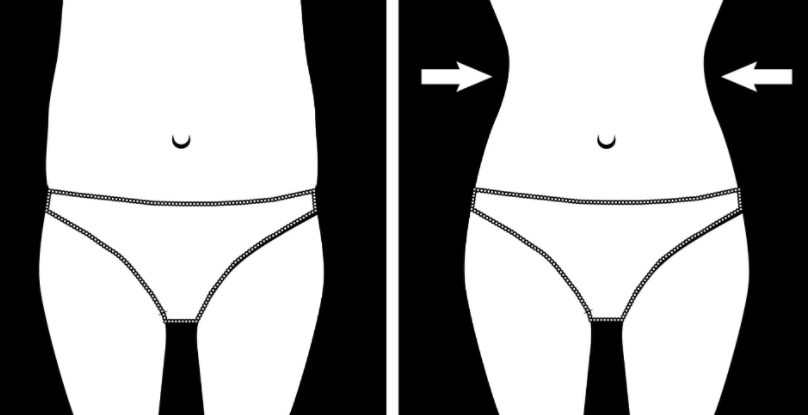Weight does not depend only on the number of calories we consume. It is determined by the diet and the amount of energy we consume and the energy we consume, as well as by physical activity. The four hormones that are most often the culprits due to which a person can not lose weight have the most significant impact. Once you understand their function, you will understand how you can influence them to make it easier for you to lose weight.
1. Insulin
Insulin is an extremely important hormone that affects the reduction of appetite, regulates the feeling of satiety, regulates body weight, increases the level of fat deposits. When does an obesity problem occur? The problem with weight gain occurs when insulin resistance occurs, ie it is a process when the body no longer receives a signal from the brain that you are full, so insulin receives information that it should increase the feeling of voice, instead of turning it off. You consume food, the pancreas produces insulin, but the brain perceives that you still need food.
Insulin has important effects on the overall functioning of every organ in the body. It is the transport of important substances from the blood into fat cells; delivers glucose to the liver, fat cells and muscles; helps prevent muscle wasting; relaxes the muscles by allowing blood to enter the small blood vessels, and low insulin levels slow down the circulation so you feel cold; regulates the excretion of salt in the kidneys.
The main role of insulin is to protect the body, and this actually stimulates the storage of fat in the cells, which makes it harder to lose weight.
2. Leptin
Leptin is a hormone that is synthesized in adipose tissue and its receptors are found in the hippocampus, hypothalamus and cortex. Leptin is a hormone that is responsible for sending a signal to the brain to suppress appetite and regulate the storage of excess calories in fat cells. This hormone also protects other tissues in the body from excess toxic substances. When leptin levels rise, it is directly linked to excess body fat. It is responsible for overeating and frequent feelings of hunger. This process occurs when the body develops resistance to leptin. Chronic increase in the level of the hormone leptin leads to obesity, overeating, and can also lead to chronic diseases such as some heart diseases, hypertension, metabolic syndrome.
How to recognize that you have elevated leptin levels?
– Causes inflammation in the body as a result of the release of cytokines
– causes fatigue, ie chronic fatigue syndrome
– may be the cause of an increased number of white blood cells
– can reduce but also increase appetite
– affects the bones, immune system, blood vessels and reproductive system
What increases leptin levels?
Leptin levels rise after a meal, in response to insulin. Foods that are rich in carbohydrates and that you consume, are further stored as fat in the body. As a result of stress, leptin levels decrease and can lead to a complete loss of appetite.
What lowers leptin levels?
Physical activity, fasting for at least 24 hours, insulin and elevated testosterone levels lower leptin levels.
3. Cortisol
Cortisol is a hormone that is responsible for weight gain. But it often happens that the blood count of overweight patients is with a normal cortisol level. Why is that? This is because increased levels of cortisol are found in adipose tissue. Cortisol increases appetite and sugar intake because it activates receptors in the hypothalamus, which in turn create the need for foods high in fat and sugar.
How does cortisol work?
– Reduces insulin production and increases the risk of insulin resistance
– adversely affects bone tissue and collagen
– prevents the absorption of calcium
– impairs immunity
– increases the secretion of leptin from fat cells
– stimulates salt retention and thus causes an increase in blood pressure
– slows down wound healing.
4. Neuropeptide Y
Neuropeptide Y is a neurotransmitter located in the brain and autonomic nervous system. This neurotransmitter is produced by brain cells and neurons. It has several functions: relieving stress, increasing the accumulation of fat and stimulating hunger, the desire for alcohol, the perception of pain and regulates the biological rhythm of the body. But it is also a common cause of obesity.
Effect of neuropeptide Y on the body:
– worsens the body’s response to stress
– increases cortisol production as a result of stress
– stimulates the creation of new fat cells and storage of fat in them
– relieves anxiety and seizures
– Too high a level can increase the risk of cancer.
Animal studies have shown that constant stress and foods rich in glucose stimulate the production of this hormone. Also, when you limit your calorie intake, its level increases.
Now that you know which hormones are responsible for weight, follow these rules:
- Check your leptin, insulin, neuropeptide Y and cortisol levels from time to time.
- Work on relieving stress through physical or psychological exercise on a daily basis
- Adhere to a proper diet and exercise, avoid overeating
- Regularly monitor the work of the glands and pancreas
- Sleep every day for 7-8 hours in complete darkness.

